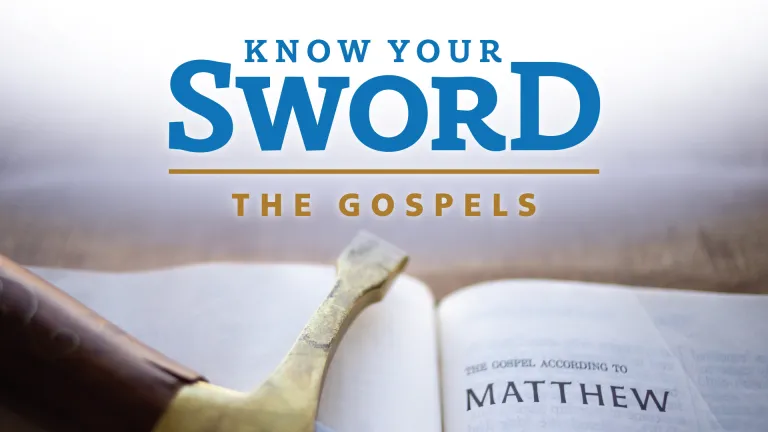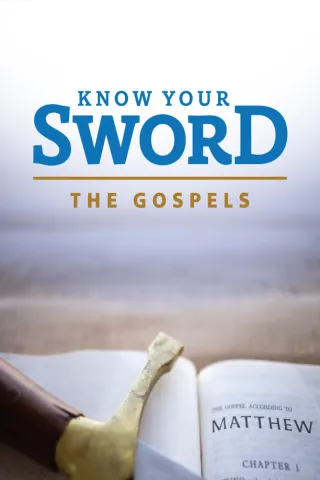Gospels Part 020

In the last two lessons of the Know Your Sword series we examined how the records of three early Roman writers confirmed Jesus Christ’s existence. In this lesson we’ll look at another non-Christian writer, the famous Jewish historian Flavius Josephus.
Josephus’ mention of John the Baptist and James
Josephus wrote the detailed historical works The Jewish War and Antiquities of the Jews late in the first century A.D. In Antiquities of the Jews, Josephus refers to many people named in the New Testament, including Jesus, John the Baptist and James the half-brother of Jesus.
Born into a priestly family in A.D. 37, Josephus was well educated and, as a military commander, led a Jewish detachment in Galilee during the Jewish revolt of 66-70 until his capture by the Romans. At the end of that war, he went to Rome with the Roman general Titus, where he lived and wrote until his death around A.D. 100.
Here is what Josephus writes about John the Baptist and his executioner, Herod Antipas:
“Now some of the Jews thought that the destruction of Herod’s army came from God, and that very justly, as a punishment of what he did against John, that was called the Baptist: for Herod slew him, who was a good man, and commanded the Jews to exercise virtue, both as to righteousness towards one another, and piety towards God, and so to come to baptism . . .
“Now when many others came in crowds about him, for they were very greatly moved by hearing his words, Herod, who feared lest the great influence John had over the people might put it into his power and inclination to raise a rebellion, (for they seemed ready to do anything he should advise,) thought it best, by putting him to death, to prevent any mischief he might cause, and not bring himself into difficulties, by sparing a man who might make him repent of it when it would be too late.
“Accordingly, he was sent a prisoner, out of Herod’s suspicious temper, to Macherus, the castle I before mentioned, and was there put to death. Now the Jews had an opinion that the destruction of this army was sent as a punishment upon Herod, and a mark of God’s displeasure to him” (Antiquities of the Jews, Book 18, chap. 5, sec. 2).
Again, this corresponds very closely with what we read about John in the Gospels. Matthew 3:1-10, Mark 1:1-6 and Luke 3:1-14 all mention John’s popularity and message of repentance as recorded decades later by Josephus. And Matthew 14:3-12 describes the scene in Herod’s palace when John was executed on Herod’s orders.

Josephus and James, “brother of Jesus, who was called Christ”
In addition to various rulers and members of the high priest’s family mentioned in the Gospels (and confirmed through archaeological discoveries), Josephus also mentions James, half-brother of Jesus Christ:
“[The Roman governor] Festus was now dead, and Albinus was but upon the road; so he [Ananias, the high priest] assembled the Sanhedrin of the judges, and brought before them the brother of Jesus, who was called Christ, whose name was James, and some others [or some of his companions;] and when he had formed an accusation against them as breakers of the law, he delivered them to be stoned . . .” (Antiquities, 20:9:1).
This same James is the author of the book of the Bible that bears his name. Although a half-brother of Jesus, he wasn’t initially a believer in His messiahship (John 7:5), but after Jesus’ death and resurrection he was among those gathered in Jerusalem at the Feast of Pentecost when the Church was founded ca. A.D. 31 (Acts 1:14).
So here we have three major figures of the New Testament—John the Baptizer, the apostle James and his half-brother Jesus, who was called Christ or Messiah—mentioned by a Jewish historian who wrote later that same century. In the next lesson, we’ll see what the noted historian wrote about Jesus Christ Himself.
© Scott Ashley, 2025. All rights reserved.



